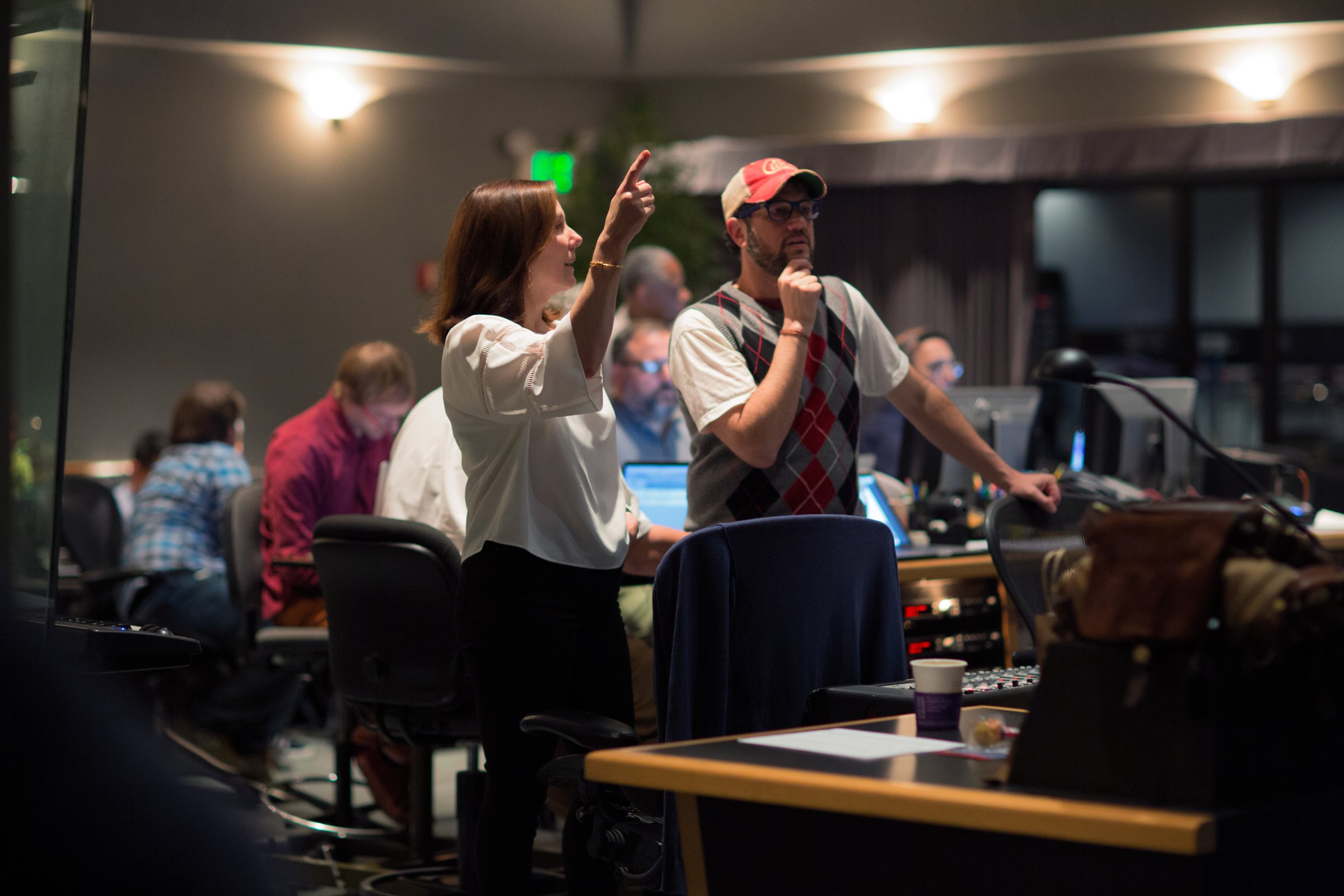
The day people hear Michael Giacchino’s Rogue One score, the Star Wars universe will expand. John Williams has scored every installment since 1977—until now.
When the self-described “nerd composer” accepted the gig to replace Alexandre Desplat, who left due to reshoot-related scheduling issues, Giacchino found himself with four and a half weeks to complete the score for the new standalone movie. (Composers typically have a year.) But if he was daunted then, he doesn’t show it now. “I knew exactly what to do because I felt it,” says the 49-year-old who scored Doctor Strange, several Star Trek films, and 2010’s Best Original Score Oscar winner, Up.
TIME talked with Giacchino about how this score will be different, the importance of keeping classical music alive, and the secrecy of making Star Wars.
On why the movie needed new music:
Whether fans approve or not, Rogue One‘s 98% original score will mark a milestone for the franchise. Even when Giacchino’s longtime collaborator, J. J. Abrams, directed The Force Awakens in 2015, the franchise stuck with Williams. (Though Giacchino did get the chance to play a Stormtrooper.) He admires the original George Lucas-John Williams “alchemy,” but says he was never going to be able to recreate the same.
“I want to continue this world,” says Giacchino. “This is a completely new story with characters we’ve never met before. They needed their own voice so it was important that the new aspects of the film and story get treated with respect, and the same intensity that they were in the past.”
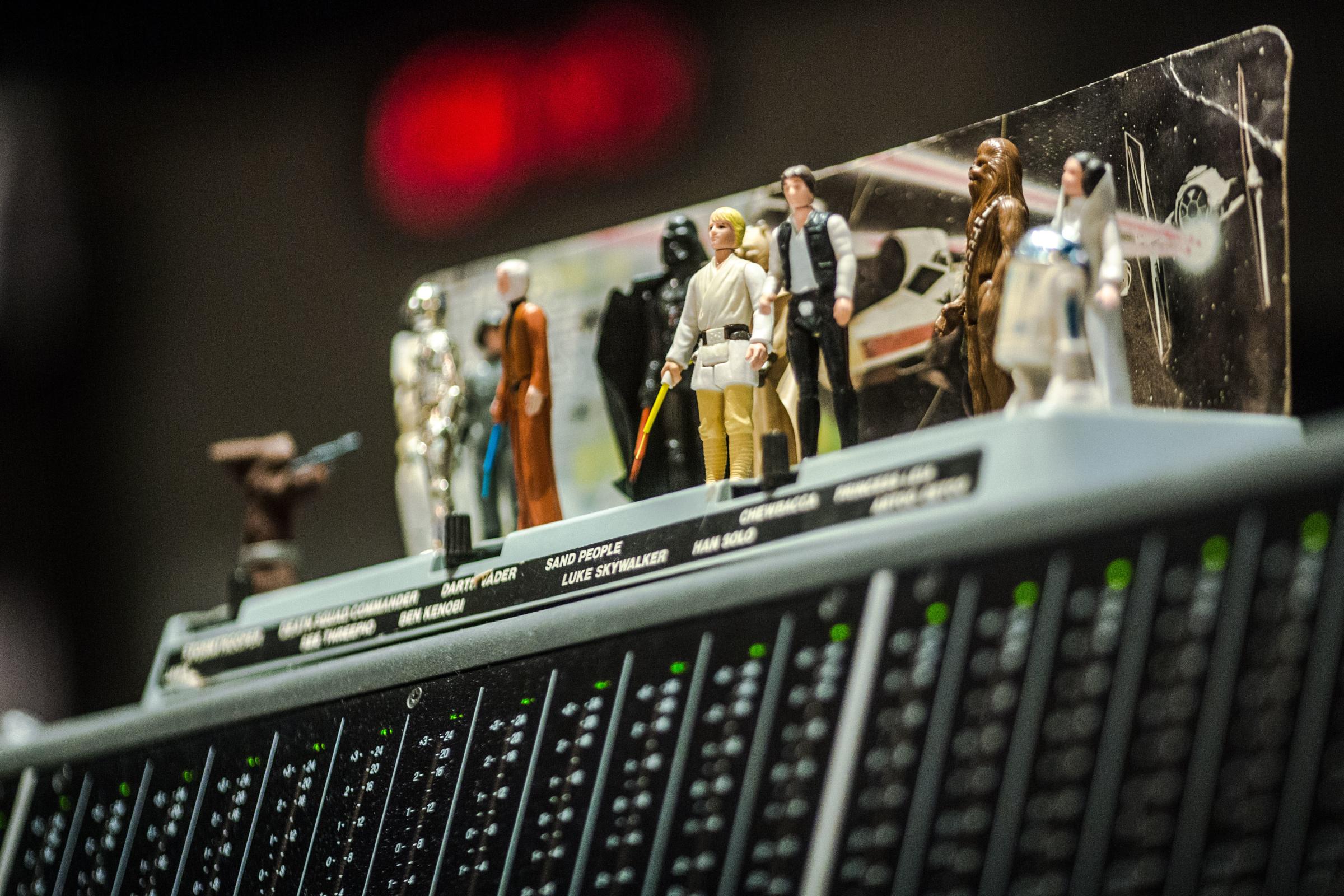
That intensity–thunderous orchestral swells and dips–lets you know you’re firmly in the Star Wars zone. It’s not on every project he gets to go so big. “With another movie it would sound old-fashioned. With Star Wars, it’s built right into the DNA,” he says.
A 110-piece orchestra and a 90-person choir performed the score, and some of the most distinctive differences will be that Giacchino stamped the new melodies with personalized touches from his Up and Doctor Strange music and some “odd things” from musician George Doering.
On balancing nostalgia and originality:
The inseparable music from the first 1977 movie was familiar by design; to keep people feeling safe in a new faroff galaxy full of light sabers and aliens. “Using stuff we all knew in our hearts and heads added a humanity and a soul. If they had gone synth or electronic, it would have dated itself so quickly,” he says.
Giacchino faced a different challenge: How to score a contemporary story designed to scratch a nostalgic itch for an obsessive fan base, hundreds of thousands of whom have listed “Jedi Knight” as their religion on Census forms. He promises the music will come peppered with Williams references—from the Force theme to the iconic Darth Vader march. “There’s moments in the film when it was the right thing to do, to hit that button that we all grew up with.”
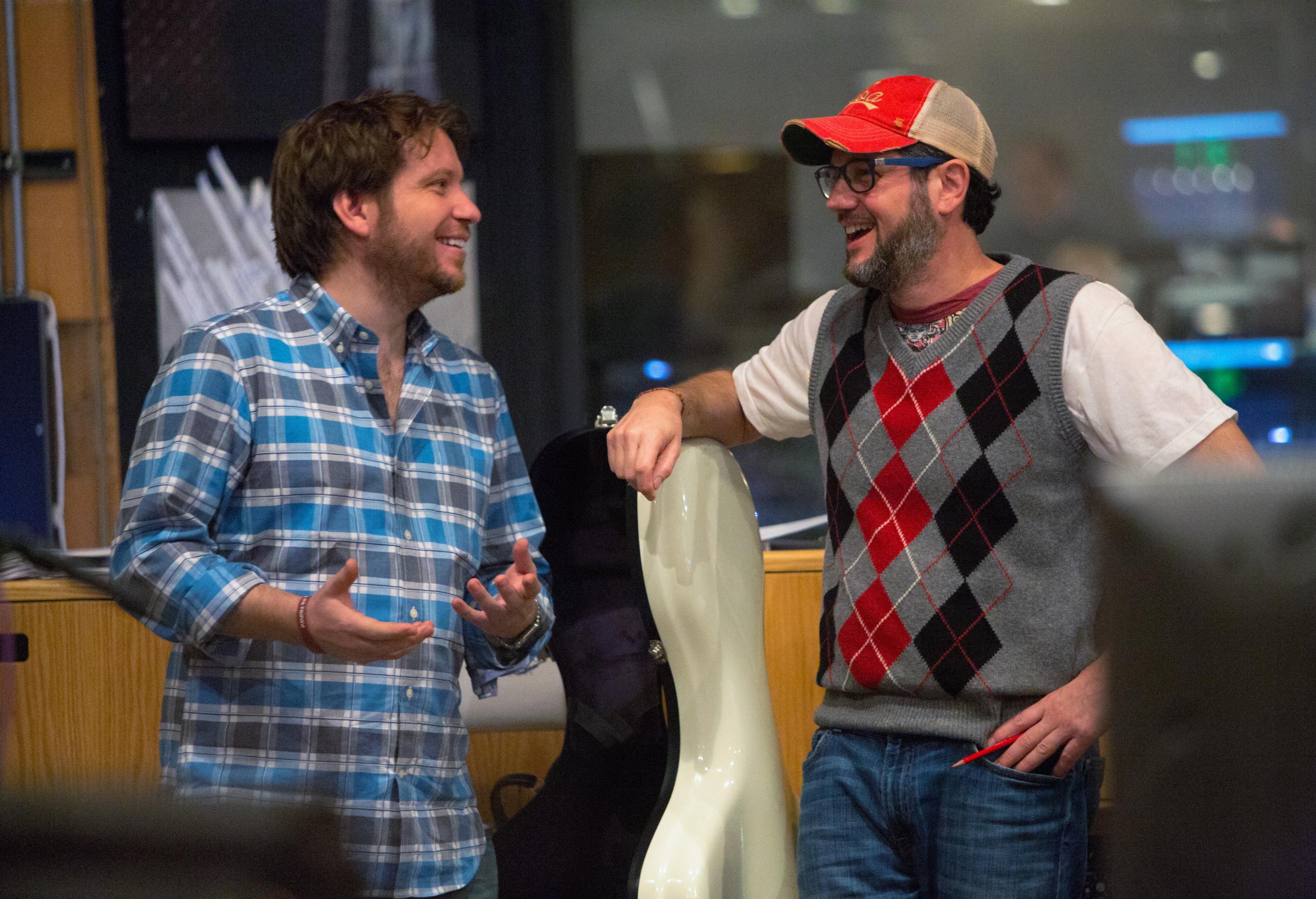
“It’s really tricky because there’s a point when you’re just doing fan service,” he says of his guiding philosophy. “You don’t want to give the whole thing over just because something was done before you. It has to be right for the story. The second you start wandering outside of that mandate, you start doing things for the wrong reasons.”
On the four week-process:
When he first saw the Gareth Edwards-directed movie starring Felicity Jones and Diego Luna, he immediately heard what he wanted to write. “I really do track what I’m feeling the first time I see a movie. Those are the feelings that I try to put into music,” he says. Describing the process as “simple,” he quickly got to work refining the nuances, improving only a single cue before the first session. “In essence, the score you hear is what was in my head. First pass,” Giacchino says.
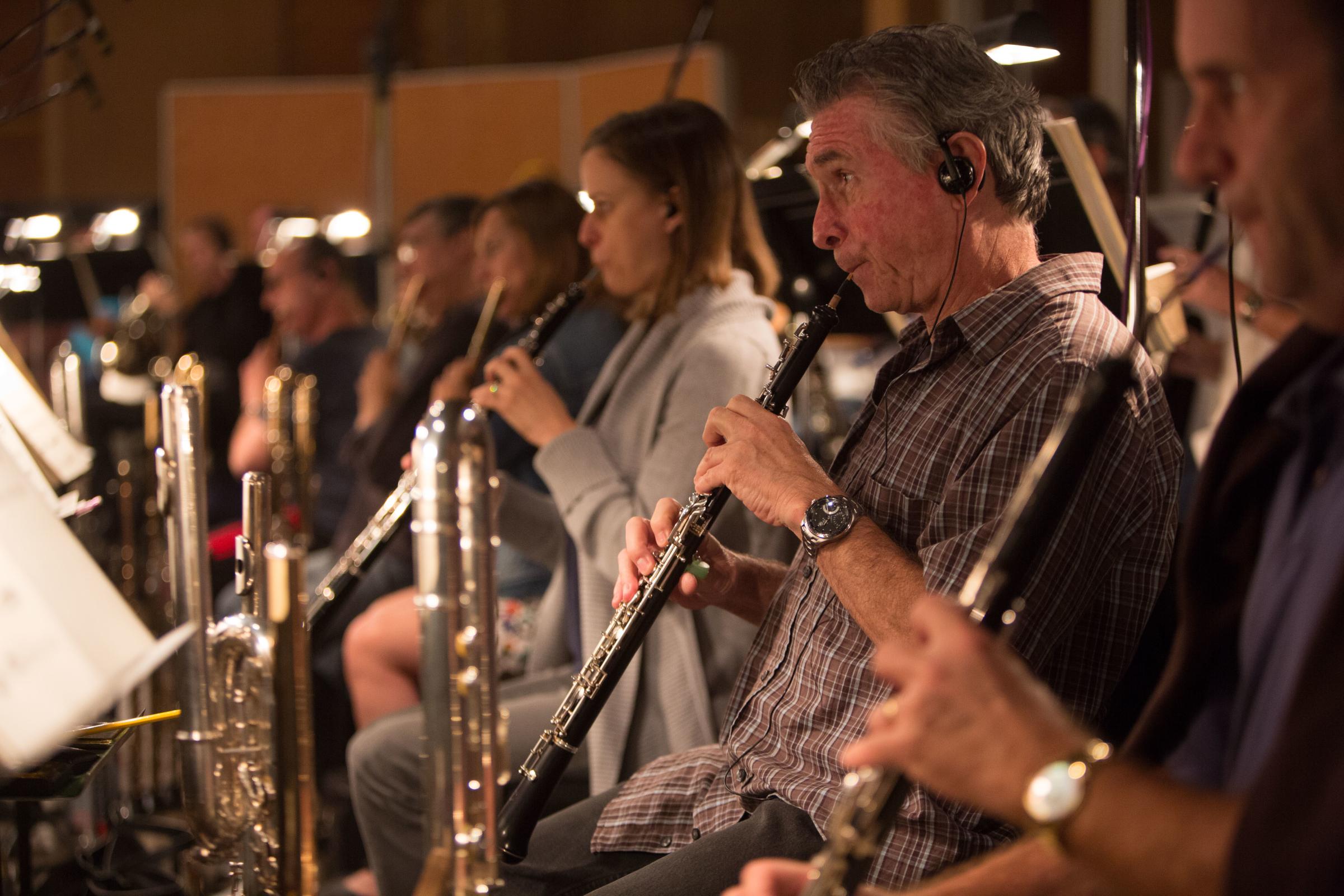
On how movies can help keep classical music alive:
It’s rare that people get this pumped about new classical music. But rebel fighters on a Death Star-related mission is incentive enough to anticipate new songs from an art form people fear is fighting to survive. To try to win classial music supporters, orchestras play Giacchino’s compositions—his Star Trek soundtracks—live around the world.
“My hope has always been that fans of films who never go to a symphony hall will see why it’s so fun.” When he asks audiences ‘who’s never seen classical music live?’ most of the hands shoot up, and he urges them to come back for Beethoven and Mahler. “I hope new classical music will make people want to relive some of the older stuff that’s gone by the wayside with Netflix, but we want to keep that alive.”
On the secrecy of Star Wars:
Star Wars movies get code names, and they can even fool the artists on the payroll. “They never call it the real thing in the paperwork. It’s called something completely different,” Giacchino explains.
So when actor Dermot Mulroney, a longtime cello player in Giacchino’s orchestra, appeared on The Late Show, he slid the title “Los Alamos” into his chat with Stephen Colbert, without knowing much about the project. “He says, ‘I play in Michael’s orchestra, and I performed Up and Star Trek,’ and he just goes down the list and says next week, I’m starting on the film, and he blurts out the code word when he had no idea it was a Star Wars movie!”
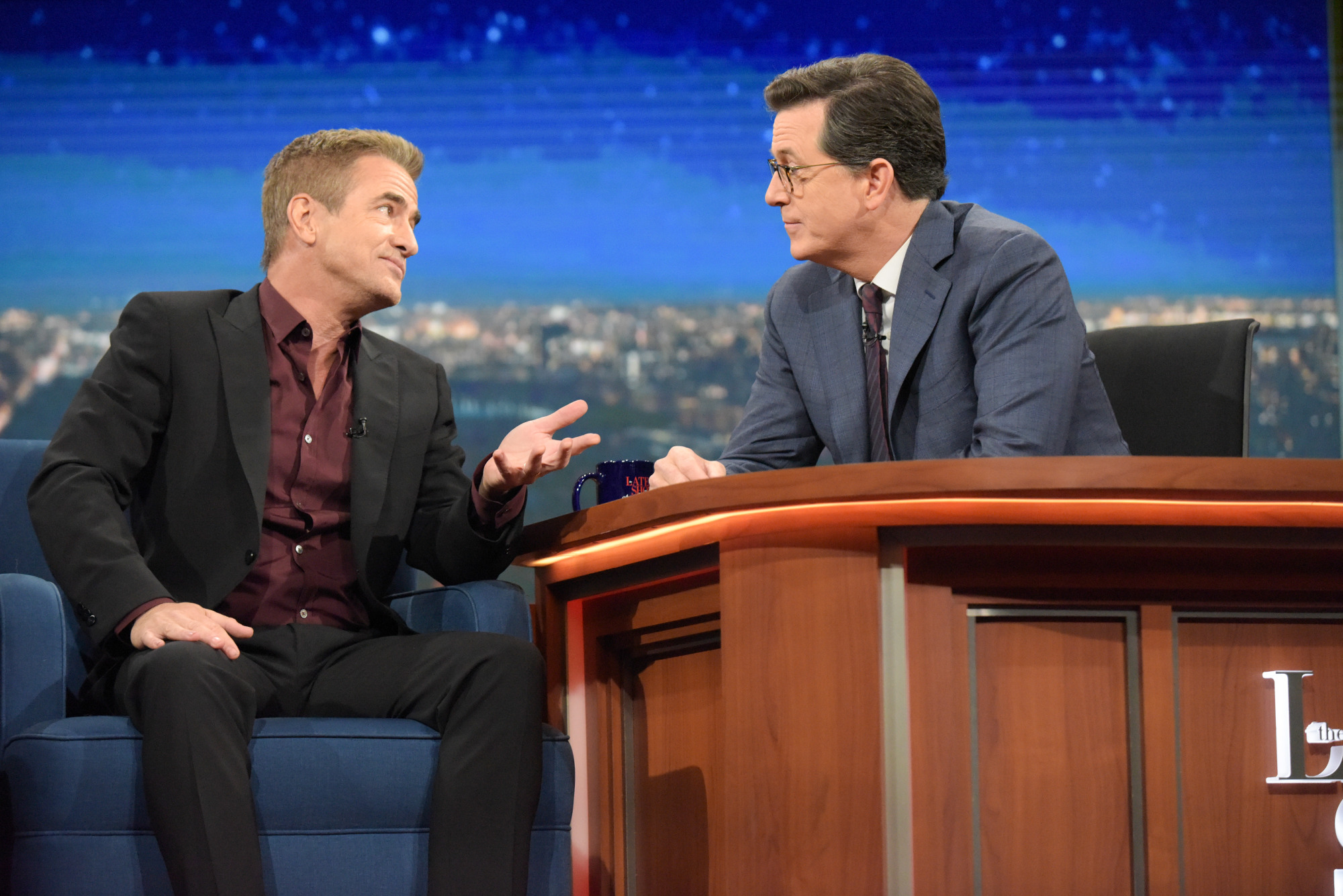
At the first session when he finally saw Star Wars Rogue One on the sheet music, Mulroney screamed, “I’m working on a Star Wars movie?” “It was so funny,” Giacchino says. “All the Disney security guards said, ‘Yeah. We noticed you mentioned that on TV.’ And he shouted, ‘I didn’t know! I didn’t know!’”
Giacchino began that session by having the orchestra play “John’s theme music” to fire everyone up. “I said to myself, I cannot believe how lucky I am. I did not want to mess it up.”
More Must-Reads from TIME
- Inside Elon Musk’s War on Washington
- Meet the 2025 Women of the Year
- The Harsh Truth About Disability Inclusion
- Why Do More Young Adults Have Cancer?
- Colman Domingo Leads With Radical Love
- How to Get Better at Doing Things Alone
- Cecily Strong on Goober the Clown
- Column: The Rise of America’s Broligarchy
Contact us at letters@time.com